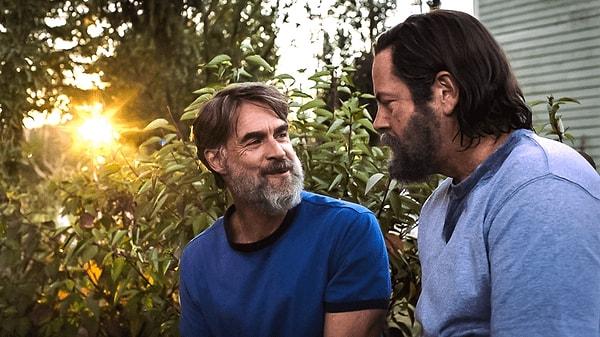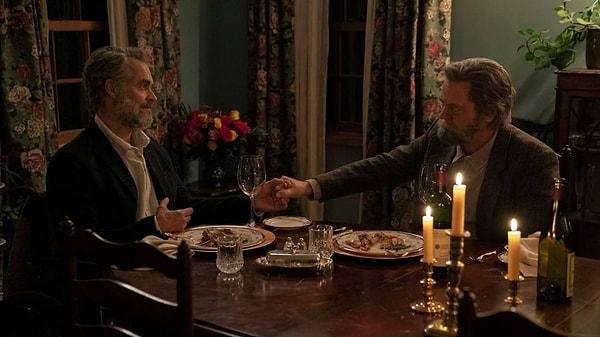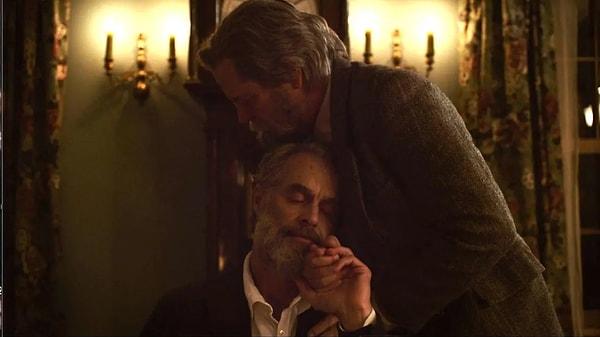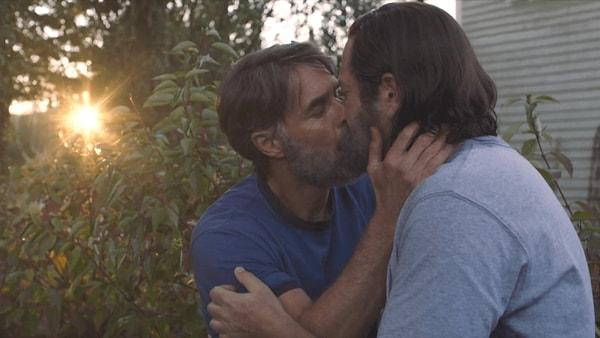 ‘The Last of Us’ Episode 3 Adaptation Gave LGBT Representation: Are Bill and Frank Really a Gay Couple in the Original Game?
‘The Last of Us’ Episode 3 Adaptation Gave LGBT Representation: Are Bill and Frank Really a Gay Couple in the Original Game?
WARNING!! There will be spoilers in this article for 'The Last of Us' on HBO and 'The Last of Us Part I' and 'The Last of Us Part II' on video games.
For several LGBTQ gamers, the sour-puss Bill from the 2013 smash hit 'The Last of Us' was their first encounter with a homosexual character in a video game.
Ten years later, on Sunday, those players marveled as the third episode of HBO's hugely successful version of the game made Bill's romance with his partner, Frank, the main focus.

Gay video game consultant Darion Lowenstein, 41, stated, 'It was wonderful, and I was totally not expecting it. I was not anticipating an 80-minute work of art that would make people cry, despite the fact that I have obviously played the games religiously and am aware of the presence of LGBT characters.”
LGBTQ gamers who spoke to NBC News after seeing the third episode of 'The Last of Us' believed that this was a crucial time for the spread of gay storylines in a genre that is commonly misunderstood as being for straight guys.
Discussing ‘The Last of Us’ Third Episode and Their LGBT Representation

In the dystopian future America depicted in 'The Last of Us,' a virus called 'cordyceps' has caused a pandemic that has turned its victims into hostile, zombie-like beasts. The fungus grows like an obscene mushroom from the host's skull, gradually blinding them and compelling them to strike with echolocation. Because of this, the late-stage infected are known as 'clickers.'
On social media, 'Chernobyl' executive producer Craig Mazin and the game's creative head, Neil Druckmann, have praised the HBO adaptation, praising it for nailing the look of the game.
The outcome of Sunday's 'Long, Long Time' episode of The Last of Us could have been drastically different. The third episode of HBO's popular new series about a mutated, zombie-infesting fungus seemed destined to advance the story of young Ellie, who appears to be immune to the plague, and Joel, her reluctant protector, as they travel from Boston west toward a lab working on a cure—a journey that had only really begun (with a bang and a few hundred whimpers) at the end of Episode 2.

Considering the show's oppressively depressing tone thus far, what we got was a capsule episode that was especially heartening: The hour is devoted to the love story of Bill and Frank, a gay couple who, initially thanks to Bill's skills as a bunker-stocking, booby-trapping, Don't Tread on Me survivalist, manage to create a mostly contented existence together in an abandoned and eventually fortified rural hamlet for almost 20 years.
The story of Bill and Frank has received nearly universal acclaim for its emotional writing and graceful pacing, which are brought to life by the award-winning performances of Nick Offerman and Murray Bartlett.
Every few years, we get brief glimpses into the couple's existence, from their first encounter at Bill's perimeter fence in 2007 to their disputes, dinners, and raider raids, to their untimely deaths in 2023 with not a tendril in sight. It's important to remember that this could have turned out very differently, too. Bill is reportedly a far worse version of Offerman's misanthropic prepper than Frank is in the computer game on which The Last of Us is based. By the time Joel and Ellie arrive, Frank had already perished while trying to depart the property in annoyance.

What is the reason for the change? 'My philosophy on this show has always been, when should we deviate, and when should we come back?,' said Neil Druckmann, the co-creator of the series and the creative director of the video games on which it is based, in the episode's after-show discussion. “If it’s kinda the same, or worse, we stay where the game is. If it’s better? We deviate.”
The Last of Us was developed in the early 2010s and released in 2013, therefore it was made before arguments regarding representation were commonplace. It was the voice actor for Bill, W. Earl Brown, who infused queerness into the character post-script after Druckmann allowed him to define their relationship at a table read, according to the game director Neil Druckmann, who admits that he wasn't thinking about representation when he created the character of Bill and that Frank was conceived as a 'best friend' in episode 2 of The Last of Us - The Official Podcast, 'Summer Part 2.'

Therefore, Bill's queerness is much more subtextual in the game than in the show, but it is nonetheless still there and continues to play a significant role in the game. The two things that can be overlooked by players who don't participate in optional content or aren't paying close enough attention are Bill's friendship with Frank and a specific magazine that Ellie steals from his collection in the church basement.
Towards the end of the Bill's Town chapter in The Last of Us (2013), when Ellie, Joel, and Bill discover Frank's body in an abandoned home, one indication of Bill and Frank's homosexual relationship is highlighted.
Although he pretends not to care when Bill refers to him as his 'partner,' the tears in his eyes suggest otherwise. In the neighboring bedroom after the cutscene, Joel can discover a letter from Frank that sheds light on their connection. Although this note could be interpreted as coming from an old friend, it makes more sense if it is sent by a lover who is fed up with their partner's 'set-in-ways.' Additionally, by giving Bill this message during an optional interaction, players can learn more about the melancholy that underlies Bill's scathing remarks in W. The outstanding performance of Earl Brown.

Ellie pulls out the magazine she stole from Bill's collection when Ellie and Joel are traveling to Tommy's shortly after the Bill's Town chapter in the game. The front cover and the way the two talk about it make it plain that this is an adult magazine with photographs of naked and scantily clad guys, giving players the biggest hint as to Bill's sexual orientation even though players are never given a decent look at the object.
Therefore, despite the fact that Bill is a gay character in The Last of Us, the proof is ambiguous and depends on players extrapolating the relationship between Bill and Frank from the characters' tone. Smaller characters like Bill and Frank are given more time because of the HBO show's broader scale, which enables the writers to make more overt alterations to The Last of Us and, in Neil Druckmann's case, approach the text with a greater emphasis on positive queer representation.
Queer viewers expressed enthusiasm that Sunday's broadcast would introduce LGBT video game characters to even more people. They claimed that prospect increased their sense of hope for the future of the sector.
Keşfet ile ziyaret ettiğin tüm kategorileri tek akışta gör!


Send Comment